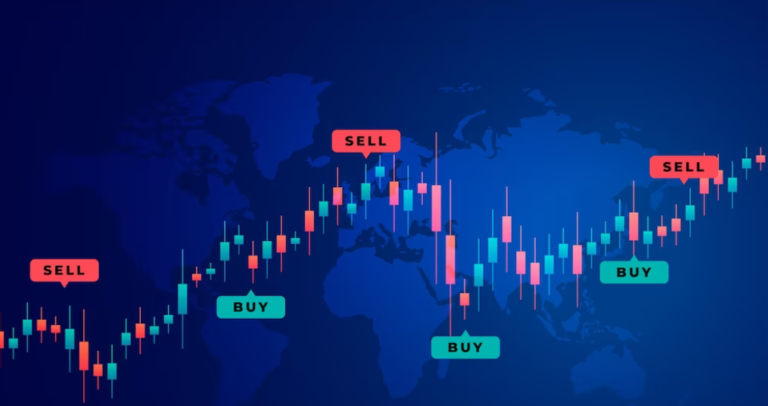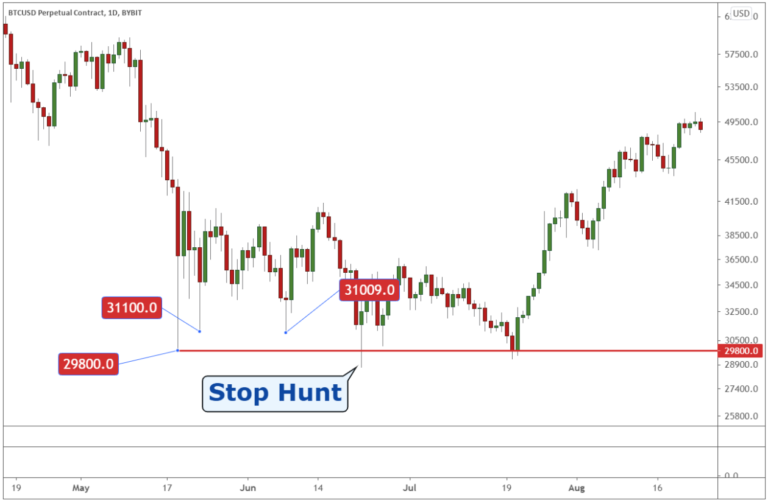Yaniv Altshulter, a computer science expert from MIT, introduced the concept of ‘Complex adaptive systems’ particularly in relation to social trading. With the swift evolution of technology, various fields, especially financial markets, have seen transformative changes. Social trading emerged in the early 2000s, primarily through features presented by the Collective platform, and it gained widespread popularity around 2010. This approach enables traders to mimic the trading patterns and decisions of their counterparts. Nonetheless, the actual effectiveness and profitability of social trading are yet to be comprehensively evaluated and confirmed, considering the risks involved.
The article offers a deep dive into social trading, highlighting how it differs from copy trading. It outlines both the possible advantages and hazards associated with this method, as well as typical obstacles traders may face. Further, it investigates tactics for boosting profitability in social trading, applicable to both beginners and seasoned traders. Understanding the profit potential of social trading necessitates an in-depth examination of top cryptocurrency trading courses.
Understanding Social Copy Trading
Social collaborative trading is a method enabling traders and investors to leverage online platforms for sharing and analyzing trading data, harnessing community insights for improved trading choices. This method involves keen observation, evaluation, and emulation of others’ trading tactics within the network.
Furthermore, this style of trading is akin to a specialized segment within the larger social media realm, focusing primarily on scrutinizing fiscal data and sharing viewpoints on diverse trading methods. Although it bears resemblance to copy trading, social collaborative trading stands out for its focus on community participation and interaction, which are notably lacking in copy trading. This article aims to delve deeper into the distinct features of social collaborative trading, beyond its interactive component.
Effectiveness of Social Trading as an Investment Strategy
The effectiveness of social collaborative trading as an investment approach depends more on how it is strategically utilized than simply on participation. Its success is influenced by a range of elements, such as the performance of the traders and investors involved, current market trends, and the skillfulness of risk management techniques. Emotional factors also significantly impact its success. For experienced professionals, this form of trading can present challenges, including navigating the complexities of maintaining community support without compromising their market reputation.
Additionally, the tendency for traders to converge on similar strategies raises questions about the efficiency of social collaborative trading. A profitable method discovered by one trader might quickly become popular, leading to an oversaturated market and reducing the distinctiveness and potential profitability of that strategy. Therefore, it is crucial for both traders and investors to carefully assess the risks associated with social collaborative trading before getting involved.
The Potential and Pitfalls of Social Copy Trading
This detailed examination presents crucial factors to understand the benefits and risks associated with social copy trading.
Risks of Social Trading:
- Dependence on External Opinions: Investors may become overly dependent on the perspectives of others, leading to a reliance that erodes their confidence in making independent trading decisions;
- Misjudgment of Ability: New investors might misinterpret initial success as a reflection of their expertise, leading to an inflated sense of trading acumen;
- Inadequate Risk Management: Investors may encounter losses when failing to set a cap on the amount of capital they are willing to risk;
- Strategy Misappropriation: Unscrupulous individuals could appropriate a trader’s strategy and unlawfully distribute it to others.
Rewards of Social Trading:
- Access to Verified Information: Novices gain entry to valuable and authentic data, enhancing their trading decisions;
- Educational Benefit: Investors have the opportunity to learn by observing and dissecting the tactics of adept traders;
- Efficiency in Trading: Automation tools within social trading can conserve time spent on research, analysis, and execution of trades.
Is Social Trading Advantageous for Experienced Traders?
Seasoned traders might find several advantages in social trading, although its profitability is contingent on several factors. For one, the transparency of strategy criteria by platforms is crucial. Consider whether you’d be willing to pay for a strategy if you knew it was openly available to other investors. This scenario underscores the risk of a strategy becoming less effective once it becomes widespread.
Therefore, experienced traders need to recognize this reality. Current research indicates a lack of definitive measures by platforms to prevent such dilution of strategy exclusivity. Another consideration for professionals is the uncontrollable aspect of how many investors are replicating their strategies. This awareness is critical because it opens up the possibility for competitors or dishonest parties to replicate and commercialize their methods on social networks.
Nonetheless, there are strategies through which a professional engaged in social trading can still realize profits, such as employing robust risk management frameworks, diversifying portfolios, and deploying tactics to navigate market fluctuations. In conclusion, experienced traders can indeed find profitability in social trading by adhering to fundamental principles and effectively managing risks and responsibilities.
Can Social Trading Be Lucrative for Novices?
For those new to the financial markets, social trading presents an opportunity that can be lucrative, both directly and indirectly. Direct profitability comes from selecting a successful trader on a reputable trading platform and mirroring their trades for potential gains. Conversely, prudent and patient beginners, rather than chasing immediate returns, often use social trading as a stepping stone toward becoming proficient traders themselves. This method serves as an educational tool, granting novices the ability to learn by observing the actions of seasoned traders.
Yet, the journey for a beginner does not stop at mere observation. A fundamental lesson in this path is mastering risk management. As risk tolerance is highly individualistic, novices must assess and understand their own comfort with risk prior to emulating the strategies of experts. In essence, profitability for beginners is attainable through diligent research, implementation of a personalized risk management strategy, and a commitment to learning beyond merely earning.
Strategies for Enhancing Gains Through Social Trading

To optimize earnings via social trading, certain strategies and tips should be taken into account:
- Investigate Traders: Conduct in-depth research on potential traders to follow, examining their track record, trading style, and approach to risk;
- Portfolio Diversification: Spread your investments across a variety of trading strategies and market conditions to mitigate risks and exploit a broader range of opportunities;
- Independent Research: Complement the insights gained from social trading with your own research into fundamental and technical analysis before deciding whom to follow;
- Strategy Awareness: Familiarize yourself with various trading strategies such as scalping, hedging, and using tools like the Fibonacci indicator to better understand the approaches of those you might copy.
The Crucial Role of Risk Management in Social Trading
In the context of social trading, risk management is a deeply personal practice that can significantly impact a trader’s success. An essential first step for social traders is to establish appropriate stop-loss orders and position sizing. Following this, it’s important to adhere to a risk-reward ratio that aligns with their individual risk appetite, setting the stage for potential profitability. Risk and emotion, often intertwined and fueled by greed, can be the bane or boon of a trader’s journey.
Traders must remain vigilant against impulsive or irrational decisions, particularly prevalent in the socially-driven trading environment. By consistently applying sound risk management principles, a social trader can mitigate potential losses and position themselves for sustainable long-term gains.
Influence of Copy Trading on Social Trading Gains
Copy trading is characterized by the automatic replication of another trader’s orders, while social trading emphasizes collective market intelligence and shared expertise. Unique attributes of copy trading can contribute to the success of social trading endeavors. The key difference lies in the platforms: social trading thrives on platforms that allow constant visibility of traders’ portfolios, whereas copy trading revolves around selecting the appropriate asset manager or trader to follow. For aspirants of the social trading scene, the initial step involves picking out a robust social trading platform to monitor trader portfolios at any time.
Conversely, copy trading demands a more selective approach where investors must decide whose trades to mimic. Ultimately, both strategies are facets of investment, and it’s prudent to consider that integrating copy trading with the insights acquired from social trading could lead to profitability.
Comparing Profitability: Copy Trading vs. Social Trading
Both copy and social trading present distinct investment methods, each with unique characteristics that influence their potential for profit. The question of which is more profitable cannot be definitively answered without considering various impacting factors. A side-by-side comparison of the two could offer better insights into their respective financial advantages.
Copy Trading Features:
- Emulates the trades of seasoned traders;
- Favors professionals by mitigating strategy saturation;
- Tends to have a higher dependency on the chosen expert;
- Requires less personal trading knowledge and experience.
Social Trading Features:
- Encompasses the principles of copy trading;
- Provides greater access to genuine market intelligence;
- Acts as a multifaceted trading instrument, benefiting novice investors;
- Facilitates direct interaction with fellow traders for collaborative learning.
In summary, while neither social nor copy trading can promise absolute profitability, social trading may hold a long-term advantage due to its educational component. It not only enables immediate trading actions but also fosters continuous learning and skill development.
Who Should Consider Social Trading?
Contrary to the common perception that social trading is tailored for novices, in-depth research reveals a broader audience reaping its benefits. It is a viable option for individuals embarking on their trading journey with limited time and expertise. Additionally, it serves professionals who desire a continuous connection to the financial markets without the capacity for relentless monitoring.
A cautionary note for these seasoned traders is in order, as their strategies may be vulnerable to theft. To counteract this, they can leverage social trading for other advantages like networking with peers or diversifying their investment portfolio. Another beneficiary of social trading is the person thirsting for market knowledge and community engagement over immediate financial gains. Lastly, it’s beneficial for those investors seeking peer affirmation to reinforce their trading decisions.
Guidelines for Navigating Social Trading Platforms Effectively

To sidestep common pitfalls associated with herd mentality on social trading platforms, certain strategies should be adopted. These guidelines cater to traders at all levels:
- Perform due diligence before mirroring trades;
- Evaluate the risk management and performance of traders, and contrast them with others;
- Temper expectations regarding swift profits;
- Steer clear of traders who gamble with high risks;
- Embrace social trading as an educational resource;
- Test out trading strategies in simulators under various market conditions;
- Diversify by following multiple traders;
- Remain steadfast in your personal trading strategy;
- Select a platform that aligns with your trading goals.
Conclusion
Social trading has emerged as a communal space for financial market participants, each contributing with the hope of monetary gain. Like any strategy, it presents both learning curves and market insight acquisition while also demanding time management. The profitability of social trading, especially for beginners, is notable, whereas professionals must navigate the risk of their strategies becoming too common. The discussion on risk management in social trading highlights that inadequate strategies can jeopardize one’s investment, irrespective of the trader or strategy followed.
To reduce risks and potential losses, traders should recognize both internal factors like overestimating one’s skills, inadequate risk strategies, and dependency on others, as well as external threats such as fraudulent actors, platform selection, and market volatility. Ultimately, the key to profit in social trading lies in devising and executing a well-thought-out plan to manage risks effectively.
FAQ
Over time, social trading has become increasingly popular, with numerous platforms serving those interested in this collective trading method. Prominent among these is eToro, which was instrumental in bringing social trading to the forefront in 2010. ZuluTrade also stands out as a frontrunner in this arena. Additional noteworthy platforms include NAGA, FXTM, AVA Trade, and Interactive Brokers.
Social trading presents potential opportunities for expert traders, but it’s important to weigh the benefits and risks carefully. Experts engaging in social trading should also consider the possible limitations, such as not having control over who mimics their trading strategies.
Social trading is primarily geared towards individuals seeking to gain insights from seasoned traders rather than actively trading on their own. As mastering trading skills and knowledge is a gradual process, leveraging social trading for long-term investments can yield sustained returns over an extended period.
Social trading is indeed applicable to day trading. However, traders need to be diligent in their research when choosing a mentor to follow. Additionally, it’s critical to implement a solid risk management strategy that aligns with their specific aims and objectives.
Social trading is a comprehensive term that includes various forms of cooperative trading activities. Copy trading, however, is a specific subset of social trading. While social trading enables participants to observe and emulate the actions of a trader, copy trading involves directly mirroring the transactions and strategies of that trader’s account.











